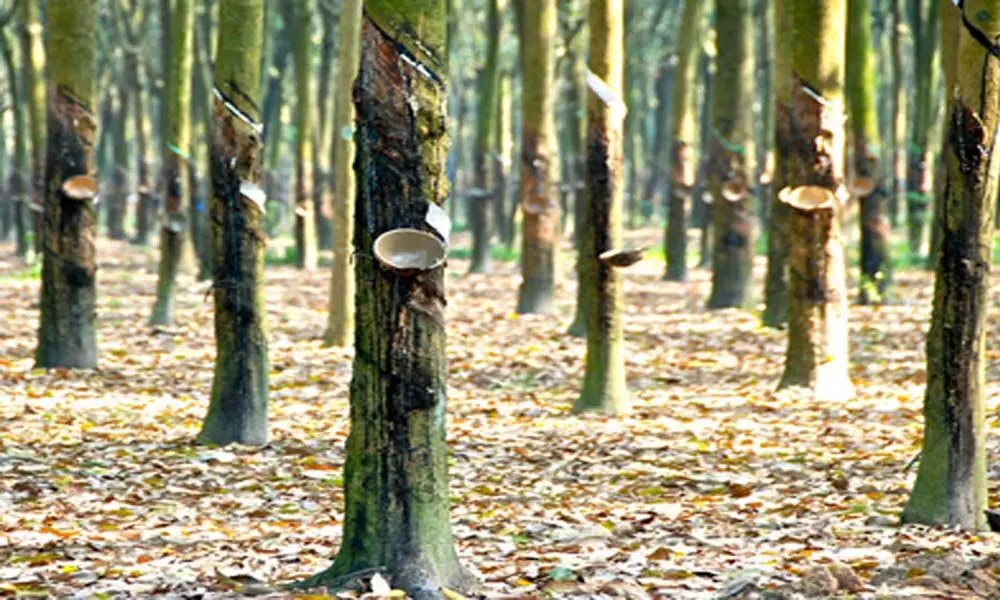Will ATMA's 1,100-cr cash push for rubber plantation be a game changer?
image for illustrative purpose

The Automotive Tyre Manufacturers' Association (ATMA), the apex body of major tyre makers in India, has lined up an ambitious Rs 1,100-crore five-year project to plant rubber in 2,00,000 hectares in the north eastern states. And if things move the way it has been envisaged, the project is expected to go on stream this month itself. Rubber Board will start the cultivation on a limited scale from June, starting with 10,000 hectares in the first year due to Covid-19 restrictions and limited availability of plants from nurseries.
This project, if executed properly, will be a game changer in more ways than one. The project is expected to boost the rubber production in the country that has stagnated in the range of 600,000 to 700,000 lakh tonnes in the last few years as low prices prevented growers from increased tapping.
With the production in Kerala having plateaued, the board and the industry have aptly decided to focus on the northeast, where rubber is grown in all the states. The region together accounts for 23 per cent of the total rubber production with Tripura leading with over 10 per cent share followed by Assam. The total acreage under rubber in northeast is 160,000 hectares.
Significantly, despite a trying first quarter in the last fiscal, natural rubber production increased to 7.15 lakh tonnes compared with 7.12 lakh tonne in 2019-20. The rise came after the production in the first quarter dropped by 41,000 tonnes to 82,000 tonnes (1.23 lakh tonnes). However, natural rubber consumption declined to 10.96 lt against 11.34 lt in 2019-20. This also led to lower imports last fiscal.
Though India lost production in the first quarter in 2020-21 due to Covid disruptions, the sector managed to come back in the remaining period, which can be attributed to rising production, higher prices prevailing in the domestic market, more rubber plantations being tapped during the rainy season by 'rain guarding' and initiating tapping in plantations lying untapped through 'adoption' of such land by the Board. Interestingly, the tyre sector staged a smart recovery after a near-barren first quarter when activities in the manufacturing sector had come to a virtual standstill due to the nationwide lockdown. The tyre industry was also helped in this regard by the restriction imposed by the government on import of tyres from abroad.
Looking at the global commodity market and the pricing issues, steady to weak trades continued in the natural rubber market last week on mixed underlying market fundamentals. China's moves to stabilize commodity prices, end of the lean production phase in many of the key natural rubber growing areas in South-East Asia along with concerns over demand from China due to slowdown in manufacturing activity weighed on overall market sentiments. However, firm crude oil prices, expectations of rise in demand from the US and European countries, and worries over supplies due to covid-19 related restrictions in many of the key natural rubber producing countries lend support. Looking ahead, natural rubber may trend steadily to weak owing to the underlying mixed market fundamentals. In the Indian market, in the meantime, while many of the Covid-19 restrictions have been eased in the main natural rubber producing state of Kerala, market momentum is yet to gather pace. It is in these contexts, the Automotive Tyre Manufacturers' Association's move assumes great significance.

